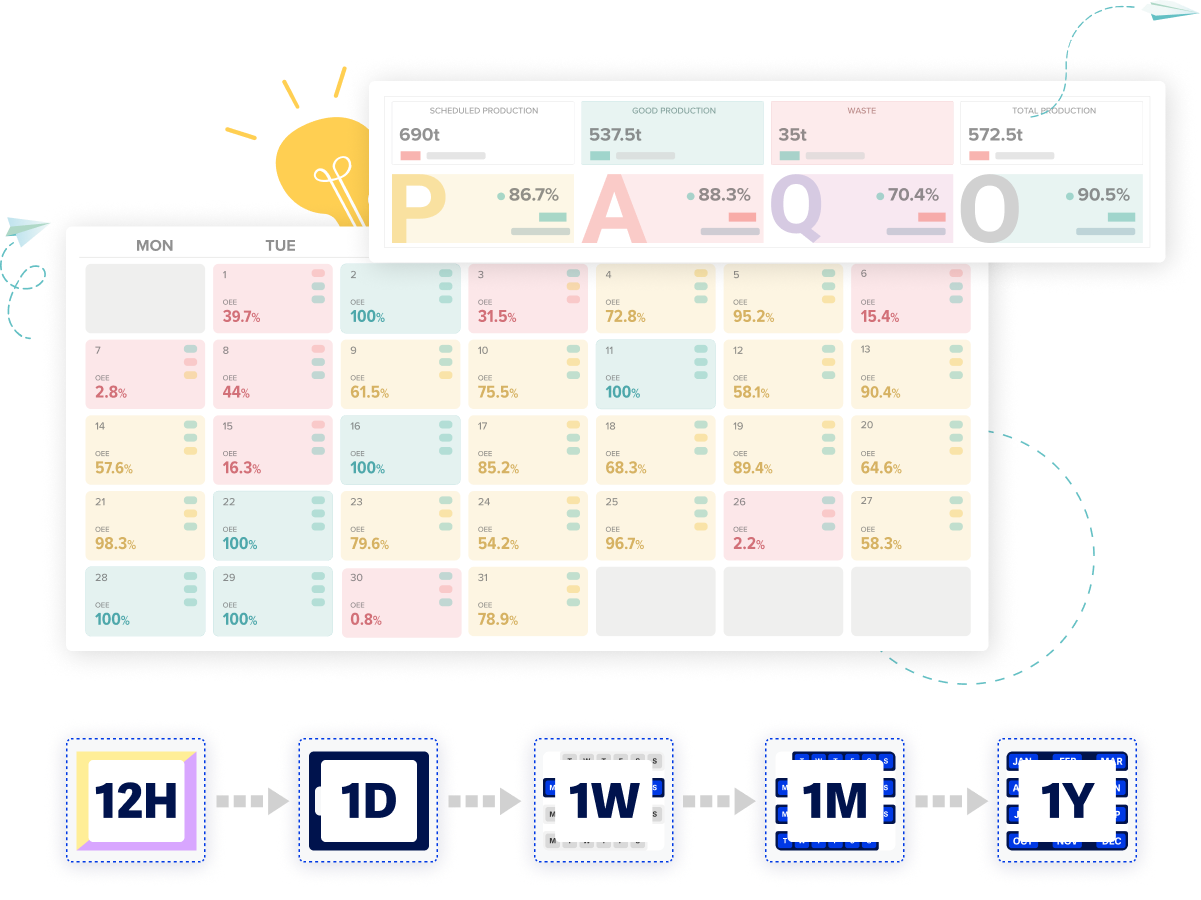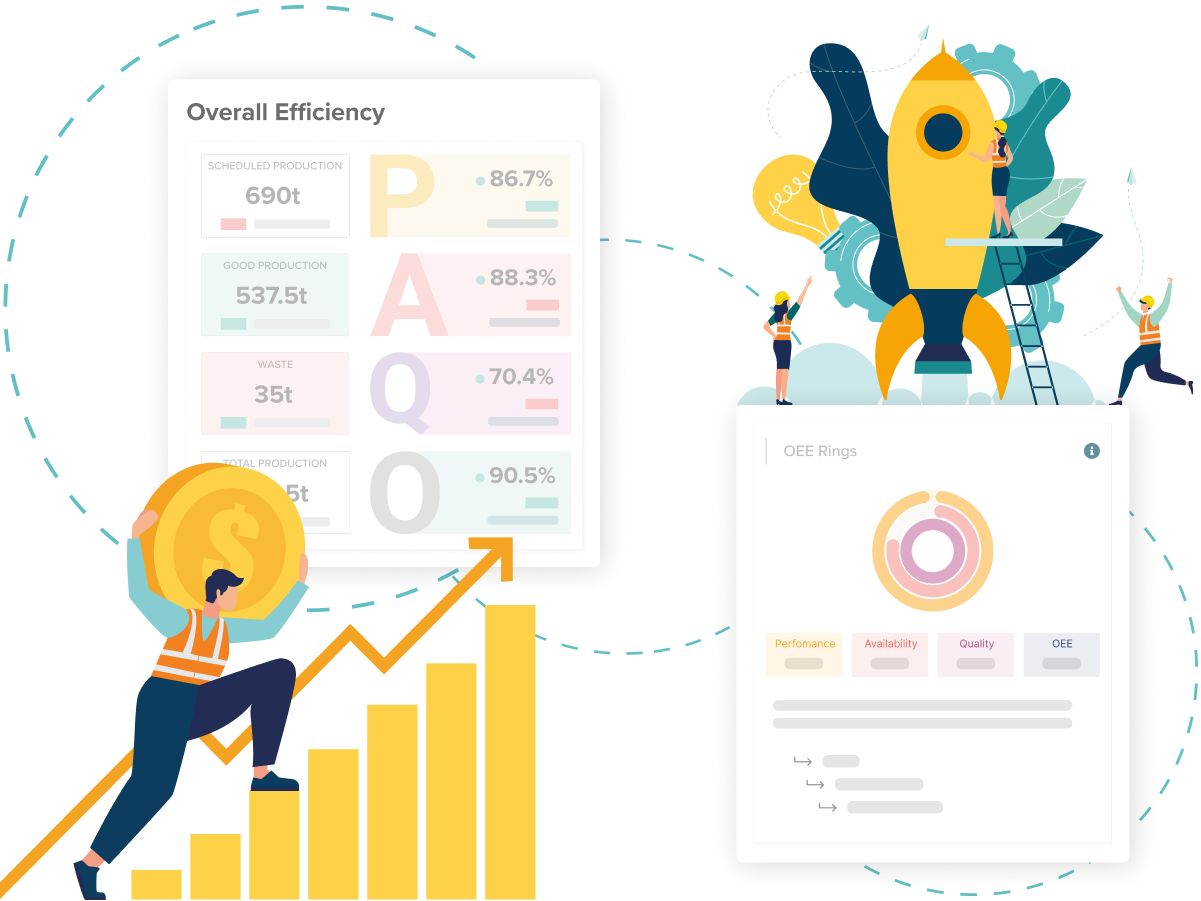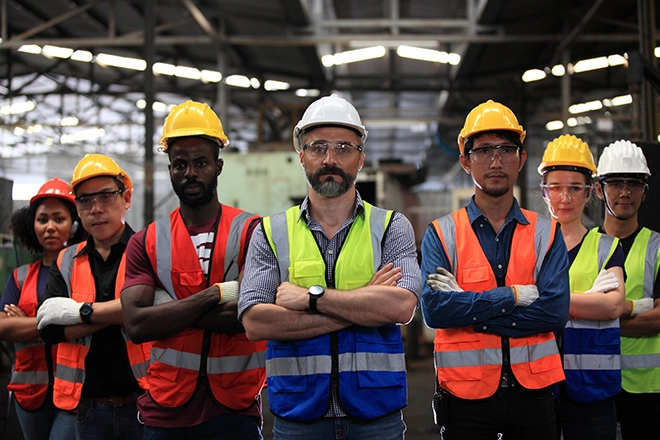Smart Manufacturing revolutionizing the automotive industry
Smart manufacturing is revolutionizing the automotive industry because it's helping manufacturers increase productivity and efficiency.
Automotive manufacturers are always looking for ways to optimize their production processes, as well as make data-driven decisions about how best to use their resources. Smart manufacturing allows them to do both of these things by making it easy for them to manage operations from start to finish, including everything from ordering parts through delivery at the assembly line.
It also makes it easier for companies to track inventory and avoid costly mistakes. By providing a centralized system for managing operations, manufacturers can reduce costs, increase productivity and improve their bottom line.
Increase productivity with smart technology
Smart technology is increasingly becoming a cornerstone of productivity enhancement in the automotive manufacturing sector. Through the integration of advanced technologies such as automation, robotics, artificial intelligence (AI), and the Internet of Things (IoT), automotive manufacturers can optimize production processes and achieve significant improvements in productivity.
One key area where smart technology drives productivity gains is in automation. By automating repetitive and labor-intensive tasks, such as assembly line operations and material handling, automotive manufacturers can increase throughput, reduce cycle times, and minimize errors. Automated systems can work around the clock without fatigue, resulting in higher production rates and improved overall efficiency. Additionally, automation allows for greater precision and consistency in manufacturing processes, leading to higher product quality and fewer defects.
Another way smart technology boosts productivity in automotive manufacturing is through data-driven decision-making enabled by AI and IoT. These technologies provide manufacturers with real-time insights into production performance, equipment status, and quality metrics. By analyzing large volumes of data collected from sensors, machines, and production systems, automotive manufacturers can identify inefficiencies, predict maintenance needs, and optimize production schedules. AI algorithms can also optimize production parameters and workflow configurations to maximize output while minimizing resource consumption, leading to further productivity gains.
Smart technology enables collaborative and interconnected manufacturing environments that enhance productivity across the entire value chain. With IoT-enabled devices and cloud-based platforms, automotive manufacturers can seamlessly integrate production systems, supply chain operations, and customer feedback loops. This integration enables greater visibility and coordination, facilitating faster decision-making and problem-solving. By leveraging smart technology to create a connected ecosystem, automotive manufacturers can respond more effectively to changing market demands, optimize resource allocation, and drive continuous improvement in productivity.

Data-Driven Decision with Smart Technology
Why are data-driven decisions so valuable to automotive manufacturers?
Data-driven decisions are invaluable to automotive manufacturers because they provide actionable insights based on empirical evidence rather than intuition or guesswork. In the highly competitive automotive industry, where margins are tight and customer demands constantly evolve, the ability to make informed decisions quickly and accurately can mean the difference between success and failure.
One key reason data-driven decisions are valuable is their potential to improve operational efficiency and optimize resource allocation. By analyzing data from various sources such as production systems, supply chain networks, and customer feedback channels, automotive manufacturers can identify bottlenecks, streamline processes, and allocate resources more effectively. For example, data analytics can help identify underutilized machinery or production lines, allowing manufacturers to reallocate resources to areas of higher demand and improve overall productivity.
Data-driven decisions empower automotive manufacturers to enhance product quality and customer satisfaction. By collecting and analyzing data on product performance, warranty claims, and customer feedback, manufacturers can identify potential issues or defects early in the production process and take corrective action before they escalate. This proactive approach not only reduces the likelihood of costly recalls or warranty claims but also improves brand reputation and customer loyalty.
Future of smart manufacturing in the auto industry
The future of smart manufacturing in the automotive industry is poised to revolutionize the way vehicles are designed, produced, and serviced. With advancements in technology such as artificial intelligence, internet of things (IoT), and robotics, manufacturers are moving towards fully connected and intelligent production systems that offer unprecedented levels of efficiency, flexibility, and customization.
One key aspect of the future of smart manufacturing in the auto industry is the concept of the digital twin. Digital twins are virtual replicas of physical assets, processes, or systems that enable real-time monitoring, analysis, and optimization. In the automotive sector, digital twins can be used to simulate and optimize every aspect of the production process, from design and prototyping to assembly and testing. By creating digital twins of production lines, manufacturers can identify inefficiencies, predict maintenance issues, and optimize throughput, leading to higher productivity and lower costs.
Another important trend shaping the future of smart manufacturing in the auto industry is the adoption of collaborative robots, or cobots. Unlike traditional industrial robots, which are often large, expensive, and isolated from human workers, cobots are designed to work alongside humans in a shared workspace. These flexible and adaptable robots can perform a wide range of tasks, from assembly and welding to quality inspection and packaging. By integrating robots into their production processes, manufacturers can improve efficiency, safety, and agility, while also freeing up human workers to focus on more complex or value-added tasks.
Additionally, the future of smart manufacturing in the auto industry is characterized by the increasing use of data analytics and predictive maintenance. By collecting and analyzing data from sensors, cameras, and other sources throughout the production process, manufacturers can gain valuable insights into equipment performance, production quality, and supply chain dynamics. This data-driven approach enables proactive maintenance and optimization, reducing downtime, minimizing defects, and improving overall efficiency.
Smart Manufacturing will continue to grow in importance for auto manufacturers
Smart manufacturing is poised to continue growing in importance for auto manufacturers as they strive to meet the demands of a rapidly changing market landscape. With increasing competition, evolving customer preferences, and the rise of disruptive technologies, automotive companies are under pressure to innovate and adapt at an unprecedented pace. Smart manufacturing offers a pathway to address these challenges by leveraging advanced technologies such as artificial intelligence, robotics, and the internet of things to create more efficient, agile, and responsive production systems.
One key driver of the growing importance of smart manufacturing in the auto industry is the need for greater flexibility and customization. With the rise of trends such as electric vehicles, autonomous driving, and shared mobility, automakers must be able to quickly reconfigure their production processes to accommodate changing product specifications and market demands.
Smart manufacturing technologies enable this flexibility by enabling real-time monitoring, analysis, and optimization of production operations, allowing manufacturers to adapt to changes in demand, supply chain disruptions, and regulatory requirements more effectively. By embracing smart manufacturing, auto manufacturers can position themselves for success in a rapidly evolving industry landscape, driving innovation, efficiency, and competitiveness.

Increase production in Automotive Industry
Conclusion
The future of smart manufacturing is bright, as it will continue to grow in importance for auto manufacturers. The ability to make data-driven decisions with real-time information can help you increase productivity, efficiency and profitability in many ways. You can use this technology to streamline operations at every level from production planning through delivery of finished vehicles by tracking every step along the way.












